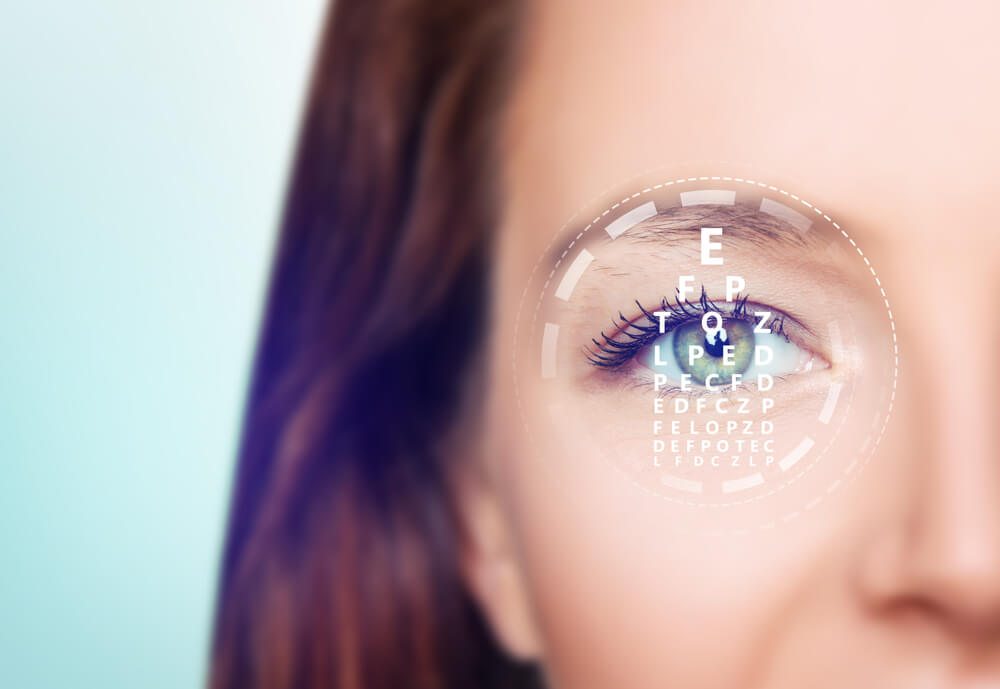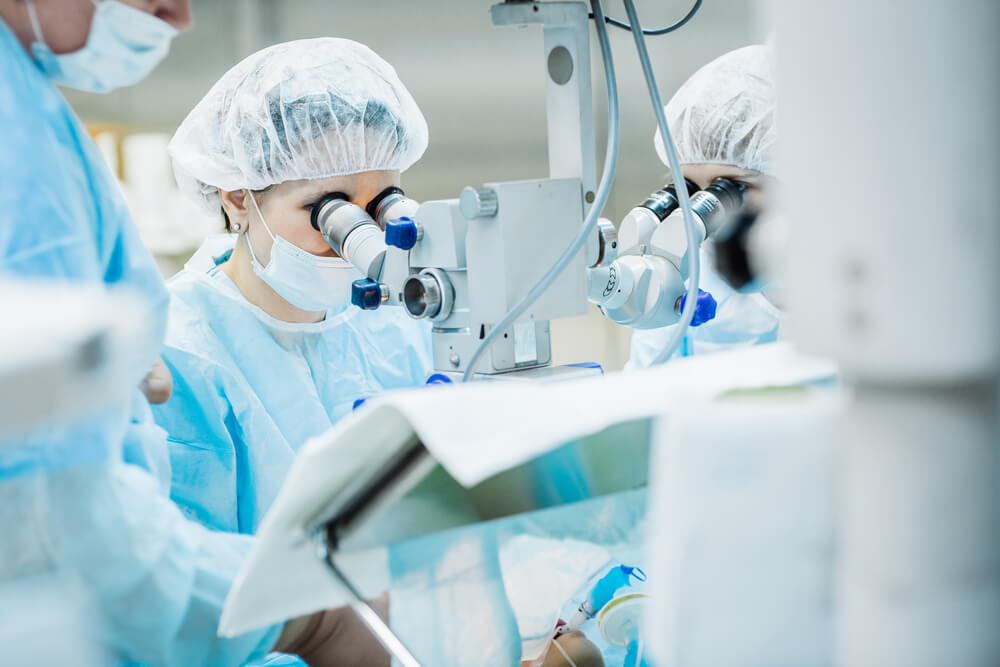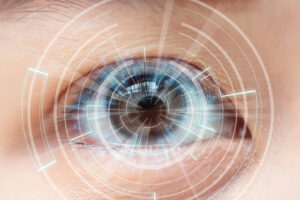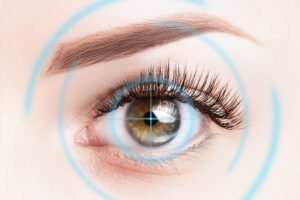
LASIK eye surgery is a transformative procedure that can correct various refractive errors and significantly improve vision. Following LASIK surgery, proper aftercare is crucial to ensure optimal recovery and long-term results. From precautions to LASIK post-operative care, Diamond Vision provides comprehensive guidance on what to do after LASIK eye surgery, emphasizing the importance of following instructions diligently.
Discover the essential steps to take for a successful recovery and maintain sharp, clear vision for years to come with Diamond Vision‘s expert care and guidance.
Understanding LASIK Eye Surgery
What is LASIK Eye Surgery?
LASIK eye surgery is a precise, minimally invasive procedure designed to correct vision problems such as nearsightedness, farsightedness, and astigmatism. This surgical method uses a specialized laser to reshape the cornea, which is the clear, round dome at the front of the eye. By adjusting the curvature of the cornea, LASIK helps light to be properly focused onto the retina, resulting in clearer vision.
The procedure is typically quick, with the laser treatment itself taking only a few minutes per eye. It has become one of the most popular vision correction surgeries worldwide because of its high success rate and quick recovery time. Patients often experience a significant improvement in vision soon after the surgery, reducing or even eliminating their dependence on glasses or contact lenses.

Does LASIK Eye Surgery Hurt?
One of the common concerns about LASIK eye surgery is whether the procedure is painful. The simple answer is no; LASIK surgery itself is virtually painless. Before the surgery begins, the surgeon applies numbing drops to the patient’s eyes. These drops help to ensure that you feel no pain during the procedure.
While the patient may feel some pressure or a sensation of something touching the eye, the actual laser treatment does not cause pain. After the surgery, as the numbing drops wear off, some patients report feeling mild discomfort, a gritty sensation, or dryness in their eyes. However, these sensations are usually temporary and can be managed with prescribed pain relief medication and eye drops. It’s important to keep your eyes closed and rest them as much as possible immediately following the surgery to minimize any discomfort.
Can LASIK Correct Farsightedness?
LASIK eye surgery is effective at treating a range of vision issues, including farsightedness, which is also known as hyperopia. Farsightedness occurs when the eyeball is too short or the cornea has too little curvature, causing light to focus behind the retina instead of on it. This results in difficulty focusing on close-up objects while distant objects may appear clearer.
During LASIK surgery to correct farsightedness, the laser is used to steepen the curvature of the cornea, which allows the light to focus more precisely on the retina and improves near vision. The procedure is tailored to the individual’s specific refractive error, and outcomes can be very successful, giving patients with hyperopia the chance to enjoy clearer vision without the constant need for corrective eyewear. However, it’s important to have a thorough consultation with an eye specialist to determine if LASIK is the best option for your particular case.
Are You a Good Candidate for LASIK?
Age and LASIK Surgery: The Ideal Candidates
When determining if someone is a good candidate for LASIK eye surgery, age plays a significant role. The ideal candidates for LASIK are typically between the ages of 18 and 40. This age range is preferred because, by age 18, most people’s eyes have stopped changing and their prescription has stabilized. After the age of 40, natural changes in the eye, such as presbyopia or cataracts, can affect vision and may influence the decision to undergo LASIK.
It’s important that a patient’s prescription has been stable for at least one year prior to the surgery. Although there’s no strict upper age limit for LASIK, older patients should undergo a thorough evaluation to assess the health of their eyes and to discuss potential alternatives if they are not ideal candidates for the surgery. Overall health, eye conditions, and expectations should be carefully considered by an eye care professional before proceeding with LASIK.
Health Conditions and LASIK Surgery
Certain health conditions can impact whether a person is a good candidate for LASIK eye surgery. Eye health is a top priority; conditions such as uncontrolled glaucoma, severe dry eye syndrome, or eye diseases like keratoconus can disqualify a person from the procedure. It’s also essential that the eyes are free from infections or injuries.
General health matters too. Autoimmune diseases, such as lupus or rheumatoid arthritis, diabetes, and medications that affect wound healing can increase the risk of complications. Pregnancy is another factor to consider, as hormonal changes can affect vision stability.
A thorough pre-operative assessment is crucial to evaluate the presence of any health issues that might affect the surgery’s safety or outcomes. By discussing your full medical history with your eye care specialist, you can ensure that LASIK is a safe option for you and increase the likelihood of a successful result.
Assessing Potential Risks: Pregnancy and LASIK Surgery
Pregnancy can significantly affect whether a woman is an appropriate candidate for LASIK surgery. During pregnancy, and often while nursing afterward, hormonal fluctuations can lead to changes in vision and eye prescription. These changes might make it difficult to accurately correct vision with LASIK, as the results could be temporary or not as effective.
Additionally, some of the medications used during and after LASIK surgery, such as antibiotics and steroids, may not be recommended for pregnant or nursing mothers. For these reasons, it is usually advised that women wait several months after pregnancy or nursing to consider LASIK surgery. This waiting period allows the eyes to stabilize, ensuring that the surgery produces the best possible long-term results. An eye care professional can provide personalized advice based on an individual’s circumstances.
LASIK Surgery Recovery Time
Immediate Aftercare: First 24 Hours Post Surgery
The first 24 hours after LASIK surgery are critical for recovery. During this time, it is vital to rest your eyes and avoid any activities that could strain them or introduce contaminants. You should expect to experience some blurriness and fluctuations in your vision; this is normal as your eyes begin to heal.
Your surgeon will likely provide you with protective eyewear to prevent rubbing or putting pressure on your eyes while you sleep. Following the surgery, you’ll be given a set of post-operative instructions, which typically include using prescribed eye drops to prevent infection and inflammation and to keep your eyes moist.
It’s also important to avoid bright lights, computer screens, and television, as these can cause eye strain. Most patients are advised to take a day off work and refrain from driving until given the all-clear by their eye care specialist. Adhering to these precautions during the immediate aftercare period can help ensure a smooth recovery.
Long-term Aftercare: The Following Two Weeks
In the two weeks following LASIK surgery, it’s important to continue with a cautious approach to aftercare to promote optimal healing. You should continue to use any eye drops prescribed by your surgeon to minimize dry eyes and reduce the risk of infection. Avoid swimming, hot tubs, and any activity where water might get in your eyes, as this can introduce bacteria.
It’s also wise to shield your eyes from dust, smoke, and other irritants that could cause discomfort or interfere with the healing process. When outdoors, wearing sunglasses will protect your eyes from UV rays and reduce the risk of complications.
During this period, you will have follow-up appointments with your eye care professional to monitor your recovery. These check-ups are crucial to ensure that your eyes are healing properly and to address any concerns you may have. By adhering to these guidelines, you can support a smooth and successful recovery.
LASIK Post-Operative Care: Dos and Don’ts

Required Medications and Their Usage
After LASIK surgery, your doctor will prescribe several medications to aid in the healing process and to reduce the risk of complications. Typically, these include antibiotic eye drops to prevent infection and anti-inflammatory eye drops to control swelling and discomfort. It is crucial to use these medications exactly as directed by your eye care professional.
You may also be prescribed lubricating eye drops to help manage dryness, a common side effect after LASIK. These drops can be used frequently, sometimes as often as every hour in the first few days, to keep the eyes moist and comfortable.
Strict adherence to your medication schedule is essential for proper healing. Do not discontinue any medication without consulting your doctor, even if your eyes feel fine. Failing to follow the prescribed regimen can lead to serious complications and negatively impact the surgery’s success.
Precautions to Take After LASIK Surgery
After undergoing LASIK surgery, taking certain precautions can significantly impact the speed and success of your recovery. It’s critical to protect your eyes from anything that could cause injury or infection. For the first week or so, you should avoid rubbing your eyes, participating in contact sports, or engaging in strenuous activities that could result in trauma to the eyes.
Makeup and facial creams should also be avoided around the eye area for a period of time to reduce the risk of irritation and contamination. Similarly, you should stay out of environments with high levels of dust, smoke, and other airborne particles.
Follow your surgeon’s advice regarding returning to work and resuming normal activities. Typically, you can return to non-strenuous work within a few days but may need to wait longer to resume more physically demanding tasks. Taking these precautions helps to safeguard your vision and ensure the best possible outcome from the surgery.
What to Expect After LASIK Surgery?
Possible Discomfort and Sensations Post-Surgery
After LASIK eye surgery, it’s common to experience some degree of discomfort or abnormal sensations in your eyes. While the procedure itself is painless due to numbing drops, you may feel a gritty sensation, as if there’s something in your eye, once the anesthesia wears off. Mild burning or itching can also occur, but it’s important not to rub your eyes, as this could dislodge the corneal flap created during surgery.
Some patients report feeling mild pain or discomfort, which typically subsides within a few hours to a couple of days. Over-the-counter pain relievers can help manage this, but always consult with your eye care professional before taking any medication post-surgery.
Your vision may be blurry or hazy at first, and you might be sensitive to light. These sensations are usually temporary and improve significantly within the first few days after the surgery. Remember, each person’s recovery experience is unique, and following your doctor’s post-operative instructions is key to a smooth recovery.
Vision Fluctuations Over the Next Two Months
It is normal to experience some fluctuations in your vision in the first two months following LASIK surgery. While many patients notice immediate improvements after the procedure, the healing process can cause temporary changes in vision clarity. This is part of the natural recovery as your eyes adjust and the corneal tissue stabilizes.
Your eyesight may vary from day to day, with some days being clearer than others. It’s also common to have difficulty with night vision, including glare and halos around lights, during this time. These side effects are typically temporary and gradually diminish as the eyes heal.
Regular follow-up appointments with your eye care specialist are important to monitor the progress of your vision and healing. Should you have any concerns about significant or persistent vision changes, it is crucial to contact your doctor. With time, your vision should stabilize, resulting in the expected improvement in eyesight.
Dealing with Night Glare and Starbursts Post-Surgery
After LASIK surgery, it’s not uncommon for patients to experience increased sensitivity to light, particularly at night. This can manifest as glare or starbursts around light sources, making night driving more challenging. These visual disturbances are due to changes in the cornea and usually decrease in intensity as the eyes heal over time.
To cope with night glare and starbursts, it is advisable to avoid driving at night in the early post-operative period. If you must go out after dark, consider having someone else drive or use public transportation. Dimming the lights at home and avoiding staring at bright screens can also help minimize discomfort.
If these symptoms persist beyond the expected recovery period, you should consult your eye care professional for an assessment. In some cases, additional treatment may be necessary to address these issues. However, for most patients, these symptoms are a temporary part of the healing process.
Whatever the case might be, our clinic is there for our patients 24/7 in the capacity the patient desires. Call us today and schedule your LASIK surgery, because the recovery and aftercare will be both safe and productive. Visit us!
Contact Us
If you have more questions about LASIK procedures, get in touch with us.
Related Blogs

Timing is Everything: When to Consider LASIK After Nursing for Optimal Results
Timing is everything when considering LASIK eye surgery after nursing, and understanding the optimal period for this procedure is vital for both mother and baby.

Cataract Surgery: Restoring Clarity and Confidence
Cataract surgery is a transformative procedure that offers a new lease on clear vision and renewed confidence. As cataracts cloud the eye’s lens, causing blurred

Intralase LASIK Explained: What to Expect Before, During, and After the Procedure
Intralase LASIK is a cutting-edge procedure that offers a safe, effective, and precise way to enhance vision compared to traditional LASIK methods. Understanding what to
